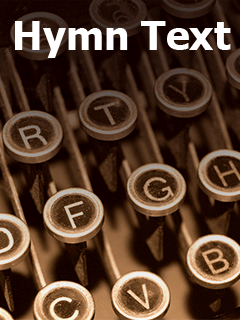Hymns of the Spirit for Use in the Free Churches of America #147
Display Title: Hail we now this happy morn First Line: Hail we now this happy morn Tune Title: SONG 13 Author: Percival Chubb Date: 1937
Hymns of the Spirit for Use in the Free Churches of America #147


 My Starred Hymns
My Starred Hymns




